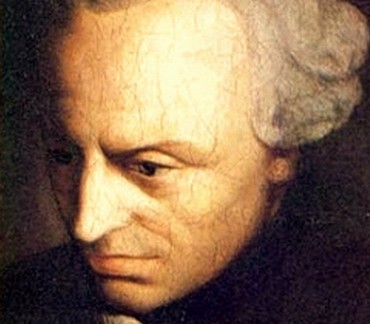sold
Eigenh. Widmung mit U. ("auctor"), aus der Erstausgabe von "Die Religion innerhalb der Grenzen der bloßen Vernunft".
Autograph ist nicht mehr verfügbar
Inscribed to his former student Carl Gottlieb Fischer, in Latin, on a blank sheet formerly constituting the flyleaf of "Die Religion innerhalb der Grenzen der bloßen Vernunft": "VIRO | docto, cordato, integerrimo, | Carol. Theophil. Fischer, | Christianismi veri | Praeconi ac Exemplo, | Amico exoptatissimo, | libellum hunc | D[at].D[icat].D[edicat]. | auctor". - At the bottom of the page is a certificate of authenticity by Justus Florian Lobeck, Secretary of the Royal Library at Königsberg, dated June 15, 1850, attesting that the rare Kant autograph was removed from the volume presented to Fischer. C. T. Fischer (1745-1801) was a hospital priest in Königsberg from 1787 and an admirer of Kant. In a letter from him to Kant on January 29, 1794, Fischer thanks him for "the gift of Religion [...] from the hand of its author" (transl.; Kant: AA XI, Briefwechsel 1794, p. 486, no. 615). - Some brownstaining. Includes two later letters and a postcard referring to the quotation.
Ausschnitt mit zwei eigenh. Zeilen.
Autograph ist nicht mehr verfügbar
"Crimen sui generis. Gehört zum Policeygesetz des Handels als plagium Menschenraub | plagium intellectuale. Der mandatarius spielt die Rolle des mandanten (stellionatus)". - This text fragment appears to be unpublished and likely originates from preliminary studies for the "Metaphysik der Sitten: Rechtslehre" (1796/97). The fragment is mounted on a quarto leaf with a handwritten certification of its authenticity by the historian and politicial scientist Friedrich Wilhelm Schubert, who together with Karl Rosenkranz published Kant's collected works in twelve volumes (1838-42): "Daß diese zwei Zeilen Crimen sui generis aus einer Handschrift Kant's herrühren und von ihm in den Jahren 1790-95 etwa geschrieben sind, wird von mir als Herausgeber der Werke Kants und Besitzer des Blatts, von dem ich heute diese beiden Zeilen abgeschnitten habe, hiedurch ausdrücklich bescheinigt. | Königsberg d. 8t Novbr 1857 | Dr Fr. W. Schubert Geheim. Regierungsrath u. Professor".
Autograph letter signed.
Autograph ist nicht mehr verfügbar
